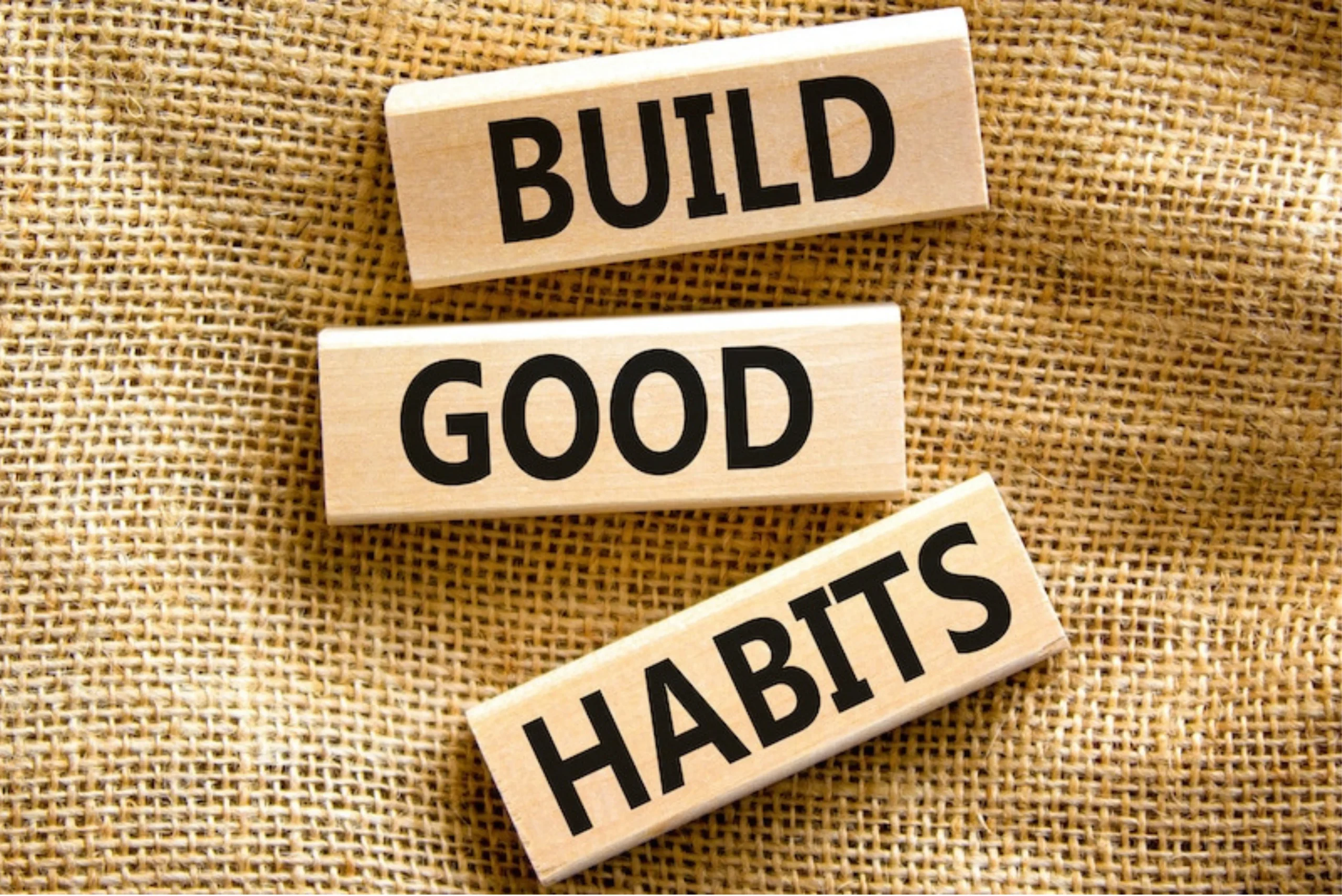Table of Contents
ToggleDiscover 15 Daily Habits to Enhance Your Life and Well-being
Explore effective Daily Habits To Improve Life and well-being, from establishing a morning routine to practicing mindfulness, exercising regularly, prioritizing sleep, setting goals, and fostering gratitude. Start your journey towards a more fulfilling and balanced life today!
In today’s fast-paced world, adopting daily habits that improve life has become more important than ever. These habits not only enhance our well-being but also contribute to our overall success and happiness. In this article, we will explore various daily habits that can significantly impact and improve our lives.
Daily Habits Of Successful People
Successful people often attribute their achievements to a set of daily habits that they diligently practice. These habits encompass various aspects of life, from personal development to health and productivity.
One common trait among successful individuals is their commitment to starting the day early, allowing them to capitalize on the quiet hours of the morning for focused work or self-care activities.
Daily Habits For Success many people adhere to a consistent morning routine, which may include exercise, meditation, or goal-setting exercises.
Prioritizing physical health is another key habit, as regular exercise and nutritious eating fuel both body and mind for optimal performance. Successful individuals also place a high value on continuous learning, constantly seeking opportunities to expand their knowledge and skillset.
Daily Habits To Improve Life effective time management, mindfulness practices, and the cultivation of meaningful relationships are among the other habits that contribute to their success.
Here Are Some Habits To Improve Your Life
Establishing a Morning Routine
- Starting the day right sets the tone for the rest of it. Establishing a morning routine can provide structure and stability to our day. Simple habits like waking up early, exercising, meditating, and having a nutritious breakfast can energize us and enhance productivity throughout the day.
Practicing Mindfulness and Meditation
- Mindfulness and meditation have gained popularity for their numerous benefits to mental and emotional well-being. Incorporating mindfulness exercises and meditation into our daily routine can help reduce stress, improve focus, and promote overall happiness.
Regular Exercise
- Regular physical activity is crucial for maintaining good health and vitality. Whether it’s going for a jog, hitting the gym, or practicing yoga, finding an exercise routine that suits our lifestyle and preferences is essential for improving life quality.
Healthy Eating Habits
- Nutrition plays a significant role in our overall health and well-being. Adopting healthy eating habits, such as consuming a balanced diet rich in fruits, vegetables, lean proteins, and whole grains, can boost energy levels, improve mood, and prevent chronic diseases.
Prioritizing Sleep
- Quality sleep is vital for our physical, mental, and emotional health. Prioritizing sleep by establishing a regular sleep schedule, creating a relaxing bedtime routine, and ensuring a comfortable sleep environment can enhance cognitive function, mood, and overall quality of life.
Setting Goals and Planning
- Setting goals gives us direction and purpose in life. By defining clear and achievable goals, we can stay motivated and focused on what truly matters to us. Planning and organizing our tasks effectively help us manage time efficiently and accomplish our objectives.
Continuous Learning
- Learning should be a lifelong pursuit. Whether it’s acquiring new skills, exploring different subjects, or seeking personal development, continuous learning broadens our horizons, boosts confidence, and keeps our minds sharp and engaged.
Practicing Gratitude
- Gratitude is a powerful practice that cultivates positivity and contentment in life. Taking time each day to reflect on the things we’re grateful for can shift our perspective, increase resilience, and foster deeper connections with others.
Building Relationships
- Human connections are essential for our happiness and well-being. Nurturing meaningful relationships with family, friends, and community members provides support, love, and a sense of belonging, enriching our lives in countless ways.
Time Management
- Effective time management is crucial for achieving our goals and reducing stress. By prioritizing tasks, setting deadlines, and eliminating distractions, we can make the most of our time and accomplish more with less effort.
Limiting Screen Time
- Excessive screen time can have adverse effects on our health and well-being. Setting boundaries around screen use, taking regular breaks, and engaging in offline activities can help reduce screen time and improve overall life satisfaction.
Practicing Self Reflection
- Self-reflection allows us to gain insight into ourselves and our experiences. Taking time for introspection, journaling, or meditation can enhance self-awareness, promote personal growth, and guide us towards greater fulfillment and authenticity.
Staying Organized
- A clutter-free environment promotes clarity of mind and reduces stress. Establishing organizational systems, decluttering regularly, and maintaining order in our surroundings can enhance productivity, creativity, and overall well-being.
Drink water
- Staying hydrated is vital for overall health and well-being. Drinking enough water throughout the day keeps your body hydrated, aids digestion, flushes out toxins, and promotes healthy skin.
Get up early
- Waking up early allows you to start your day with intention and productivity. It provides extra time for self-care, exercise, planning, and goal-setting, setting a positive tone for the rest of the day.
Practice gratitude
- Cultivating gratitude by expressing appreciation for the things you have can enhance your overall happiness and well-being. Taking time to acknowledge and be thankful for the blessings in your life fosters a positive mindset and reduces stress.
Reading
- Reading regularly stimulates the mind, improves cognitive function, and expands knowledge. Whether it’s fiction, non-fiction, or self-help books, reading exposes you to new ideas, perspectives, and experiences.
Walk
- Incorporating a daily walk into your routine is a simple yet effective way to stay active and improve overall health. Walking boosts cardiovascular health, strengthens muscles, improves mood, and reduces stress.
Eat healthy
- Consuming a balanced diet rich in fruits, vegetables, whole grains, and lean proteins is essential for optimal health and well-being. Healthy eating habits provide the necessary nutrients to fuel your body, maintain weight, and prevent chronic diseases.
Self-care
- Prioritizing self-care involves taking intentional actions to nurture your physical, mental, and emotional well-being. This may include activities like practicing mindfulness, indulging in hobbies, pampering yourself, and setting boundaries to protect your energy.
Daily journaling
- Daily Habits Tracker journaling allows you to reflect on your thoughts, emotions, and experiences. It promotes self-awareness, reduces stress, enhances creativity, and serves as a tool for personal growth and self-expression.
Make your bed
- Starting your day by making your bed sets a positive tone and instills a sense of accomplishment. It creates a tidy environment, reduces clutter, and sets the stage for productivity and orderliness throughout the day.
Meal plan
Planning your meals ahead of time saves time, money, and energy. Meal planning ensures that you eat nutritious meals, avoid unhealthy food choices, and stay on track with your dietary goals.
Adopt a growth mindset
Embracing a growth mindset involves believing in your ability to learn and grow. It encourages resilience, persistence, and a willingness to embrace challenges as opportunities for development and improvement.
Cold showers
- Taking cold showers has been linked to various health benefits, including improved circulation, enhanced mood, increased alertness, and boosted immunity. Cold showers can also promote faster muscle recovery after exercise.
Evaluate your current daily habits
- Regularly assessing your current habits allows you to identify areas for improvement and make necessary adjustments. Reflecting on your habits helps you align your actions with your goals and values.
Daily Habits To Improve Life Enough sleep
- Prioritizing adequate sleep is crucial for overall health and well-being. Quality sleep improves mood, cognitive function, immune function, and reduces the risk of chronic diseases.
Spend time in nature
- Connecting with nature has numerous health benefits, including reduced stress, improved mood, enhanced creativity, and increased vitality. Spending time outdoors promotes physical activity and encourages mindfulness.
- Actively listening to others fosters meaningful connections, enhances empathy, and strengthens relationships. Being a good listener involves giving your full attention, showing empathy, and validating the speaker’s feelings.
Be a positive person
- Cultivating a positive attitude promotes resilience, optimism, and emotional well-being. Positive thinking enhances problem-solving skills, reduces stress, and improves overall quality of life.
Eat consistently throughout the day
- Maintaining consistent eating patterns stabilizes blood sugar levels, sustains energy levels, and prevents overeating. Eating regular meals and snacks throughout the day supports metabolism and promotes satiety.
Daily Habits For Students
Developing effective daily habits is crucial for student success. By establishing routines such as regular study sessions, adequate rest, and healthy eating, students can optimize their academic performance and overall well-being.
Consistency and discipline in practicing these habits not only improve grades but also foster personal growth and resilience, setting students up for long-term success in their academic and professional endeavors.
7 Daily Habits To Change Your Life Forever
- Start Your Day with Gratitude:
Begin each morning by expressing gratitude for the blessings in your life. This simple practice can shift your mindset to one of abundance and positivity, setting the tone for the rest of your day.
- Exercise Regularly:
Incorporate physical activity into your daily routine. Whether it’s a brisk walk, yoga session, or gym workout, regular exercise boosts mood, improves energy levels, and enhances overall health and well-being.
- Practice Mindfulness and Meditation:
Take time each day to quiet your mind and be present in the moment. Mindfulness and meditation reduce stress, increase self-awareness, and promote mental clarity and emotional resilience.
- Eat Nutritious Foods:
Fuel your body with wholesome, nutrient-rich foods. Focus on incorporating plenty of fruits, vegetables, whole grains, and lean proteins into your diet to support optimal health and vitality.
- Prioritize Sleep:
Make sleep a priority by establishing a consistent sleep schedule and creating a relaxing bedtime routine. Aim for 7-9 hours of quality sleep each night to support physical and mental rejuvenation.
- Set Daily Goals:
Start each day with a clear sense of purpose by setting specific, achievable goals. Break larger tasks into smaller, manageable steps and prioritize your most important tasks to stay focused and productive.
- Practice Self-Care:
Make time for self-care activities that nourish your body, mind, and soul. Whether it’s reading a book, taking a bubble bath, or enjoying a hobby, prioritize activities that recharge and rejuvenate you.
Daily Good Habits For Students Success
- Consistent Routine: Establishing a Structured Schedule
- Early Mornings: Maximizing Productivity with Early Starts
- Nutritious Breakfast: Fueling the Brain for Optimal Performance
- Organization Tools: Utilizing Planners and Apps for Efficiency
- Self-Care Prioritization: Balancing Health and Academic Demands
- Goal Setting: Setting Clear Objectives for Academic Achievement
- Active Classroom Engagement: Participating Actively for Enhanced Learning
- Time Management Techniques: Strategies for Effective Task Prioritization
- Seeking Support: Initiating Help-Seeking Behaviors When Necessary
- Regular Review and Revision: Reinforcing Learning Through Consistent Practice
FAQs
What are the best daily habits?
The best daily habits are those that contribute to overall well-being and productivity. Some examples include:
- Waking up early
- Exercising regularly
- Practicing mindfulness or meditation
- Eating a balanced diet
- Getting enough sleep
- Setting and reviewing goals
- Practicing gratitude
- Engaging in continuous learning
- Maintaining a positive mindset
- Prioritizing self-care
What are 10 healthy habits?
Ten healthy habits that promote physical, mental, and emotional well-being include:
- Eating a variety of nutritious foods
- Drinking plenty of water
- Exercising for at least 30 minutes most days of the week
- Getting enough sleep (7-9 hours for adults)
- Managing stress through relaxation techniques or hobbies
- Avoiding smoking and excessive alcohol consumption
- Practicing good hygiene habits, such as regular handwashing
- Prioritizing mental health by seeking support when needed
- Limiting screen time and taking breaks from electronic devices
- Engaging in social activities and maintaining strong relationships
What is the perfect daily routine?
The perfect daily routine varies depending on individual preferences, goals, and lifestyle. However, a well-balanced daily routine typically includes:
- Waking up early and starting the day with a nutritious breakfast
- Incorporating physical activity, such as exercise or stretching
- Allowing time for work or study, with breaks for rest and relaxation
- Practicing mindfulness or meditation to reduce stress and promote mental clarity
- Eating balanced meals and staying hydrated throughout the day
- Setting aside time for hobbies, socializing, or self-care activities
- Wind down in the evening with a calming bedtime routine, such as reading or listening to music, to prepare for restful sleep
How can I improve my lifestyle through habits?
Improving your lifestyle through habits involves identifying areas for growth and implementing positive changes gradually. Here are some steps to consider:
- Start small: Focus on adopting one or two new habits at a time to avoid overwhelm.
- Set specific goals: Define what you want to achieve with each habit and track your progress.
- Be consistent: Make your new habits a priority and incorporate them into your daily routine.
- Stay motivated: Remind yourself of the benefits of your new habits and celebrate your successes along the way.
- Be flexible: Adjust your habits as needed to accommodate changes in your schedule or circumstances.
- Seek support: Surround yourself with people who encourage and support your efforts to improve your lifestyle through habits.












